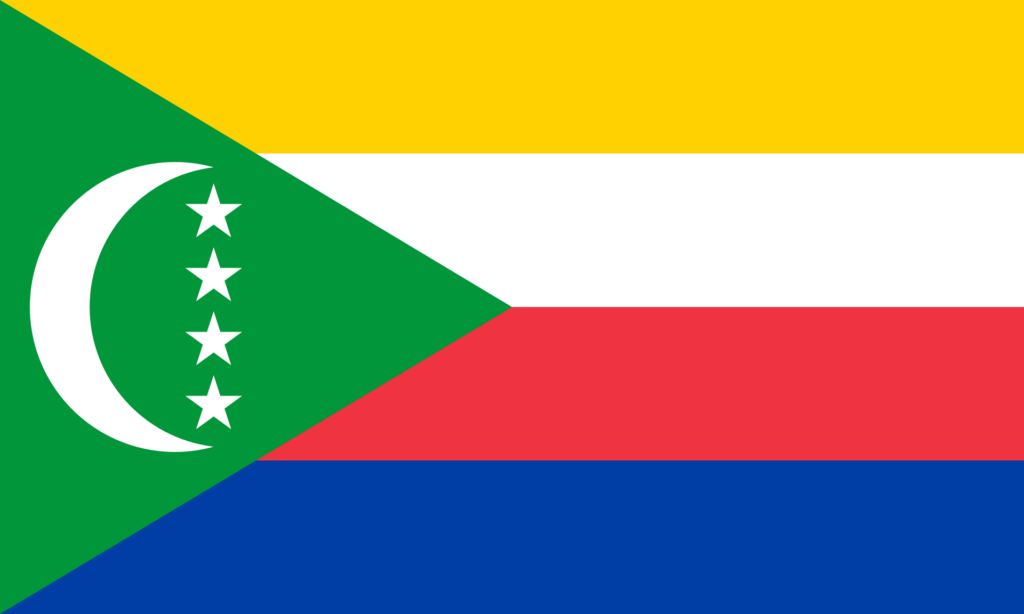Election of the Day: Comoros

Azali Assoumani first came to power when as a Colonel in the Comoros army, he led a successful coup d’etat of the former prime minister and current president, Tadjidine Ben Said Massounde, in April of 1999. This was the 5th successful coup d’etat in the first 24 years of Comoros independence. Assoumani justified the coup as necessary to preserve the territorial integrity of The Comoros, accusing President Massounde of negotiating with leaders of the island of Anjouan, who sought greater autonomy or possibly independence. (This justification, like many justifications for coup d’etats, was rather dubious, as the Anjouan question had been settled at a conference in Madagascar.) His new constitution was enacted via referendum in 2001, with elections in 2002. He resigned, ran, and won with 75% of the vote. He left office after one largely ineffective term; in no small part he delayed the constitution’s mandate to devolve powers to the islands, leading to legislative and judicial gridlock. Also: he was ineligible for another term, as the constitution he’d played a major role in birthing mandated a rotation of presidents from the three main islands of the Comoros. Assoumani was from Grande Comore; it was Anjouan’s turn.
He returned to politics in 2016, winning a narrow plurality in a three-way race, 41-40-19. He was easily re-elected in 2019, a re-election that was made possible by a dubious constitutional referendum that, among other changes, removed presidential term limits. He’s seeking his 4th term as president today, and there’s no reason to think he won’t obtain it. He has five competitors, but a number of major opposition figures have called for a boycott of the election:
Since 2019, Assoumani’s government has cracked down on dissent, critics say. Former President Ahmed Abdallah Sambi, who was in office between 2006 and 2011, was sentenced to life in prison in November 2022 for high treason related to corruption allegations. At the time of his sentencing, he had already spent four years in detention.
Political protests have been repeatedly banned for security reasons.
“Democracy only exists in the lying discourses of Azali,” said the main opposition leader, Mohamed Ali Soilihi, who lives in exile in France and has called for an election boycott.
Assoumani denies that anyone is prosecuted for political reasons and has vowed the election will go ahead successfully despite the boycott calls.
Comoros’ political and constitutional instability and concomitant economic instability has long stood in sharp contrast with the relative peace and prosperity of Mayotte, an island in the Comoro archipelago that has remained an overseas department and single territorial collectivity of France. In the independence referendum of 1974, the three islands that comprise the Comoros today by more than 99%, while Mayotte voted for closer ties to France by about 60-40. The official position of the Comoros government is that Mayotte should be understood as a self-governing region of the Comoros. Residents of the archipelago had long been accustomed to free movement between the islands, and because of the grinding poverty and political instability and repression that have characterized the Comoros over the last half century, and Mayotte’s attractive and prosperous status, it has become a major site of unauthorized immigration into the European Union. The frustration with unauthorized immigration led to Marine Le Pen getting her best result in all of France in the first round of the 2022 election, and a has led to a brutal crackdown last year:
It took less than 24 hours to raze the shantytown of Talus 2 on the French Indian Ocean island of Mayotte. France’s Operation Wuambushu (“take back”) began on Monday last week in its overseas territory, between Madagascar and Mozambique, with a dozen excavators and trucks carrying police officers. By Tuesday 23 May, most of the neighbourhood’s 162 informal homes had been destroyed, leaving hundreds of people without shelter.
Details of the operation were revealed in February as President Emmanuel Macron approved sending 510 additional French police officers to Mayotte with the aim of fighting “gangs, substandard housing and irregular immigration”.
Backed by far-right collectives and elected officials in Mayotte, the Macron government has begun waging a tough battle on the island.
Already, police have been using live rounds and arresting young people alleged to be involved in criminal gangs. The government reportedly aims to deport between 10,000 and 20,000 undocumented people (310,000 people live in Mayotte, an estimated half of whom are foreigners), and to destroy 1,000 bangas, or informal housing, in slums where 40% of the island’s inhabitants live.
I don’t know how the Mayotte/immigration issue figures in this election, if at all, but the election itself, which is sure to lead to a status quo result consolidating the power of an agent of de-democratization, is kind of dismally boring, so I thought I’d pad it out a bit.
After a very busy week in global elections, we’ll have a short reprieve before we close out the month of January with Tuvalu and Finland.


